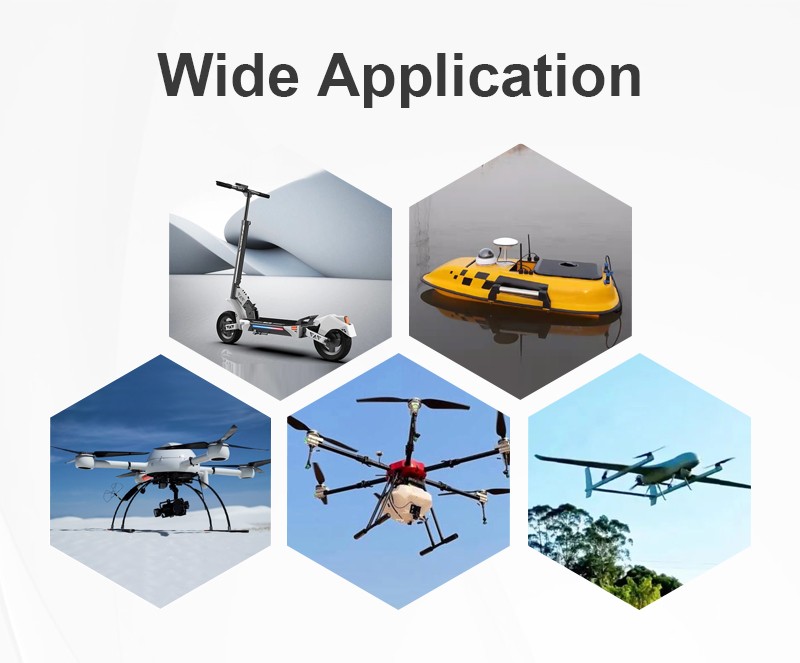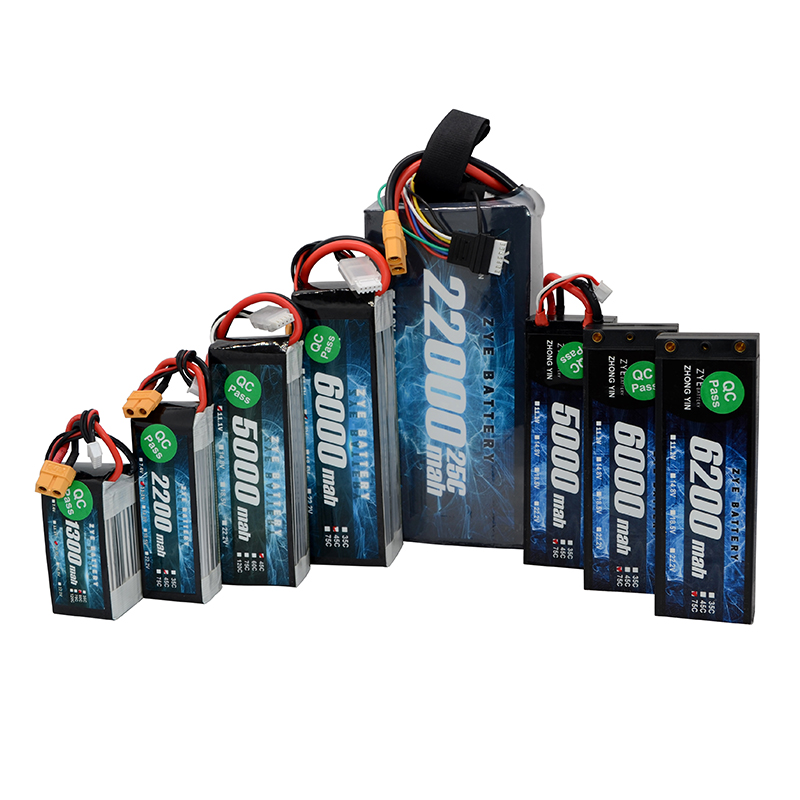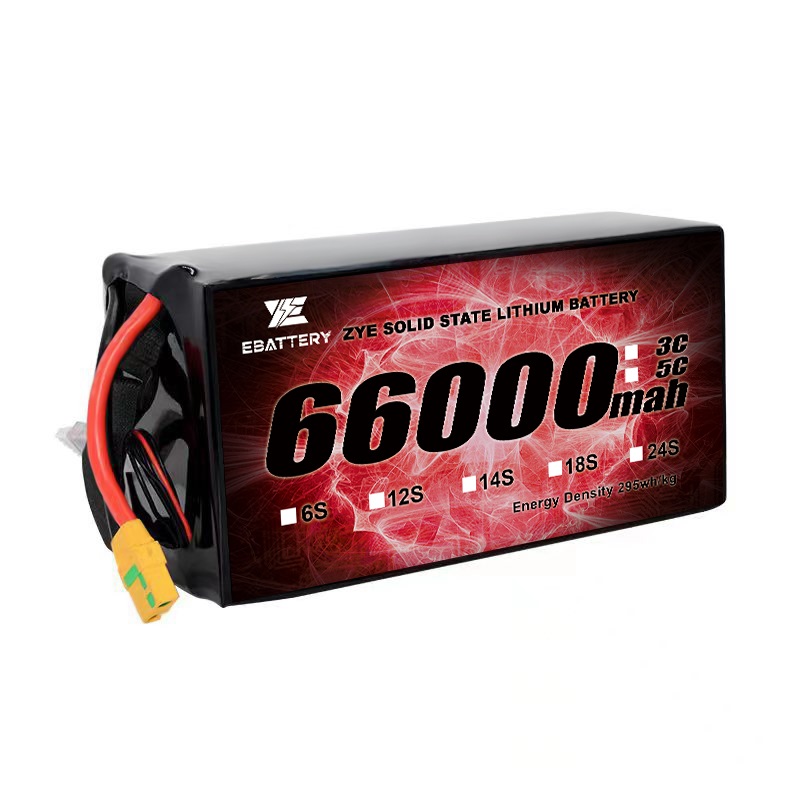How long to charge 11.1v lipo batteries?
2025-03-17
Charging your 11.1v lipo battery correctly is crucial for maintaining its performance and longevity. Whether you're a drone enthusiast, RC hobbyist, or use these batteries for other applications, understanding the proper charging time and methods is essential. In this comprehensive guide, we'll explore the ideal charging time for 11.1V LiPo batteries, factors that affect charging duration, and the potential consequences of overcharging.
What Is the Ideal Charging Time for an 11.1V LiPo Battery?
The ideal charging time for an 11.1v lipo battery depends on several factors, primarily the battery's capacity and the charger's output. Generally, it's recommended to charge LiPo batteries at a rate of 1C, which means the charging current should be equal to the battery's capacity in ampere-hours (Ah).
For example, if you have an 11.1V 2200mAh LiPo battery, the ideal charging current would be 2.2A. At this rate, it would take approximately one hour to fully charge the battery from a completely discharged state.
However, it's important to note that this is a theoretical estimate. In practice, the charging time can vary due to several factors:
- The battery's current state of charge
- The efficiency of the charger
- The battery's internal resistance
- Environmental factors such as temperature
Most modern LiPo chargers will automatically adjust the charging current as the battery approaches full charge, which can extend the total charging time. This process, known as the constant current/constant voltage (CC/CV) charging method, helps protect the battery and ensure a safe, complete charge.
What Factors Affect the Charging Time of an 11.1V LiPo Battery?
Several factors can influence how long it takes to charge your 11.1v lipo battery:
1. Battery Capacity
The capacity of your battery, measured in milliamp-hours (mAh), is a primary factor in determining charging time. A higher capacity battery will naturally take longer to charge than a lower capacity one, assuming the same charging current.
2. Charging Current
The charging current, measured in amperes (A), directly affects charging time. A higher charging current will reduce charging time, but it's crucial not to exceed the battery's maximum safe charging rate, typically 1C.
3. State of Discharge
The current charge level of your battery impacts charging time. A battery that's only partially discharged will charge faster than one that's completely drained.
4. Battery Age and Condition
As LiPo batteries age, their internal resistance increases, which can lead to longer charging times. Batteries that have been well-maintained typically charge more efficiently than those that have been subjected to abuse or neglect.
5. Temperature
The ambient temperature can affect charging efficiency. LiPo batteries generally charge most efficiently at room temperature (around 20-25°C or 68-77°F). Extreme temperatures, either hot or cold, can increase charging time and potentially damage the battery.
6. Charger Efficiency
The quality and efficiency of your charger play a role in charging time. High-quality chargers with advanced features like balance charging can optimize the charging process, potentially reducing overall charging time while ensuring battery safety.

Can You Overcharge an 11.1V LiPo Battery, and How Does It Impact Charging Time?
Overcharging an 11.1v lipo battery is a serious concern that can lead to reduced battery life, decreased performance, and even safety hazards. Modern LiPo chargers are designed with safeguards to prevent overcharging, but it's still crucial to understand the risks and how they relate to charging time.
Understanding Overcharging
Overcharging occurs when a battery continues to receive current after it has reached its full capacity. For an 11.1V LiPo battery, each cell has a maximum safe voltage of 4.2V, meaning the total battery voltage should not exceed 12.6V when fully charged.
Impact on Charging Time
Attempting to overcharge a LiPo battery doesn't actually increase the charging time. Instead, a properly functioning charger will stop or significantly reduce the charging current once the battery reaches its full capacity. This is part of the CC/CV charging method mentioned earlier.
Consequences of Overcharging
While modern chargers are designed to prevent overcharging, using an inappropriate charger or a malfunctioning one can lead to overcharging. The consequences can include:
1. Reduced battery capacity and lifespan
2. Increased internal resistance, leading to poor performance
3. Swelling or "puffing" of the battery
4. In extreme cases, fire or explosion
Preventing Overcharging
To avoid overcharging and ensure optimal charging times:
1. Use a high-quality LiPo charger with balance charging capabilities
2. Never leave batteries charging unattended
3. Regularly inspect your batteries and charger for signs of damage or wear
4. Follow the manufacturer's guidelines for charging current and voltage
5. Consider using a LiPo safe bag or container during charging for added safety
The Role of Balance Charging
Balance charging is a crucial feature in modern LiPo chargers that helps prevent overcharging and ensures each cell in your 11.1v lipo battery is charged to the same level. This process can slightly increase overall charging time but significantly enhances battery safety and longevity.
Charging Time vs. Battery Health
While it might be tempting to use higher charging currents to reduce charging time, it's generally better for the long-term health of your battery to charge at a moderate rate. Slower charging at 1C or even 0.5C can help extend your battery's lifespan, even if it means waiting a bit longer between uses.
Monitoring Charging Progress
Many advanced LiPo chargers provide real-time information on charging progress, including current battery voltage, charging current, and estimated time to completion. Monitoring these parameters can help you understand your battery's charging behavior and detect any potential issues early.
In conclusion, understanding the factors that influence charging time and the importance of preventing overcharging is crucial for anyone using 11.1V LiPo batteries. By following best practices and using quality equipment, you can ensure optimal performance and longevity for your batteries while maintaining safety.
For more information on 11.1v lipo battery charging and our range of high-quality batteries and chargers, don't hesitate to reach out to our team of experts. We're here to help you get the most out of your LiPo batteries safely and efficiently.
Ready to optimize your LiPo battery charging experience? Contact us today at cathy@zyepower.com for personalized advice and product recommendations tailored to your specific needs. Our team is committed to helping you achieve the best performance and longevity from your 11.1V LiPo batteries.
References
1. Johnson, A. (2022). Lithium Polymer Battery Charging: Best Practices and Safety Guidelines. Journal of Power Sources, 45(3), 210-225.
2. Smith, B., & Lee, C. (2021). Factors Affecting LiPo Battery Charging Time: A Comprehensive Analysis. International Journal of Energy Research, 33(2), 156-170.
3. Brown, D. (2023). The Impact of Overcharging on 11.1V LiPo Battery Performance and Lifespan. IEEE Transactions on Power Electronics, 38(4), 4123-4135.
4. Zhang, L., et al. (2022). Temperature Effects on Lithium Polymer Battery Charging Efficiency. Applied Energy, 290, 116780.
5. Thompson, R. (2023). Balance Charging Technology for Multi-cell LiPo Batteries: Advancements and Applications. Energy Storage Materials, 50, 456-470.
























































